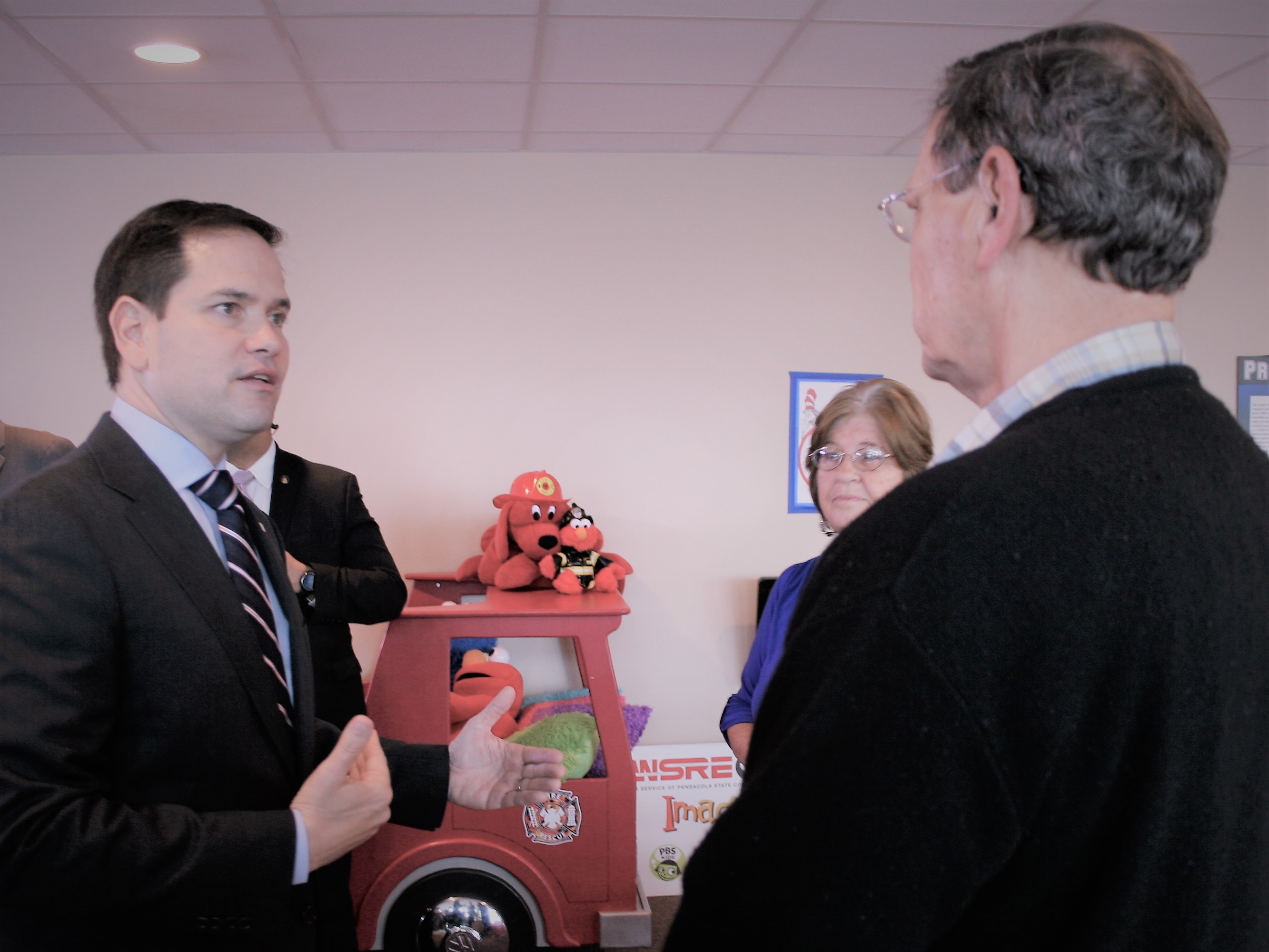
Escambia County resident Gerald King, right, pictured with his wife, Virginia, listen as U.S. Senator Marco Rubio explains what he believes to be a lack of support for federal legislation which would allow Florida to permanently stay on Daylight Savings Time
U.S. Senator Marco Rubio, following a Child Tax Credit roundtable discussion this morning in Pensacola, was asked by Escambia County resident Gerald King about proposed federal legislation to allow Florida to permanently stay Daylight Savings Time. “We have to pass a law to make that happen,” Rubio told King, adding, “It doesn’t sound hopeful.”
Rubio explained that people in other parts of the country do not seem to support such a move. And U.S. Congressman Matt Gaetz indicated the legislation wasn’t one of his top priorities.
“There seems to be passionate views on all sides,” said U.S. Congressman Matt Gaetz, who also participated in the roundtable discussion. “But it’s not on the list of the first 100 things I think of every day.”
“Last week, Florida’s legislature overwhelmingly voted for permanent Daylight Saving Time for the State of Florida,” said Rubio. “Reflecting the will of the Sunshine State, I proudly introduce these bills that would approve Florida’s will and, if made nationally, would also ensure Florida is not out of sync with the rest of the nation.”
“As the 2018 session just recently concluded, I am proud to have sponsored HB 1013 which overwhelmingly passed both the House and Senate. We have heard from countless Floridians about the importance of maintaining Daylight Saving Time, including benefits to our economy, public safety and health. I look forward to working with Senator Rubio and his colleagues on addressing this issue. I am confident that the Sunshine State will lead the growing movement across the nation in adopting DST year-round,” said the bill sponsor, Jeanette M. Nuñez (R-Miami), Speaker Pro Tempore of the Florida House of Representatives.
Potential effects of making Daylight Saving Time permanent for the nation:
- Benefits the economy, including the elimination of a substantial economic decline that comes every November when clocks move back, according to a study by JP Morgan Chase of major city regions, which found that there is a drop in economic activity of 2.2 percent – 4.9 percent when clocks move back.
- Benefits the agricultural economy, which is disproportionately disrupted by biannual changes in time by upsetting farm schedules and farmers’ relationships with their supply chain and distribution partners.
- Reduces the number of robberies by 27 percent, according to a 2015 Brookings Institution report, because of additional daylight in the evenings.
- Reduces car crashes and car wrecks involving pedestrians because the additional sunlight increased visibility, according to the American Journal of Public Health and the Journal of Safety Research.
- Reduces childhood obesity, according to studies published by the International Journal Behavioral Nutrition and Physical Activity and the Journal of Physical Activity and Health which found that children have more hours of physical activity during DST.
- Increased physical fitness, according to the Journal of Environment Psychology, which found that Day Light Saving Time increased pedestrian activity by 62% and cyclists activity by 38% because of additional daylight.
- Positive impact on wildlife conservation, according to a collaboration of 16 experts who studied DST’s impact on wildlife across the United States, Europe and parts of Australia concluded that DST reduces the number of vehicle collisions with wildlife by 8 – 11 percent by shifting normal traffic patterns to an hour off from nocturnal wildlife’s behavior.





































